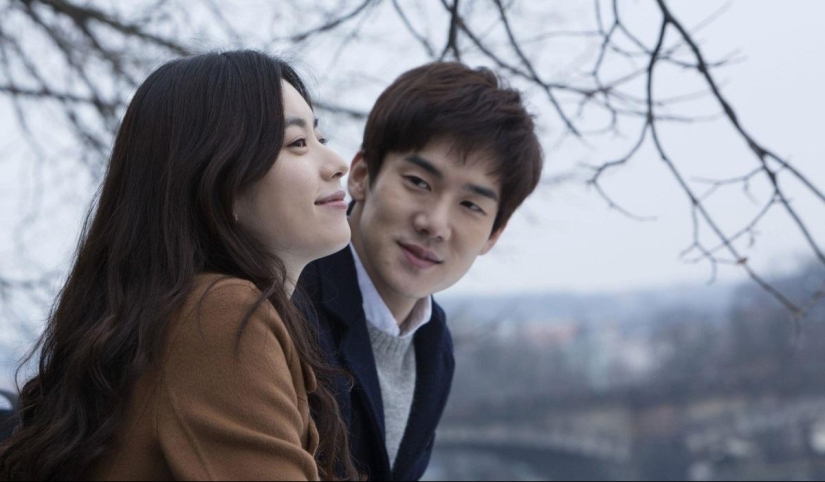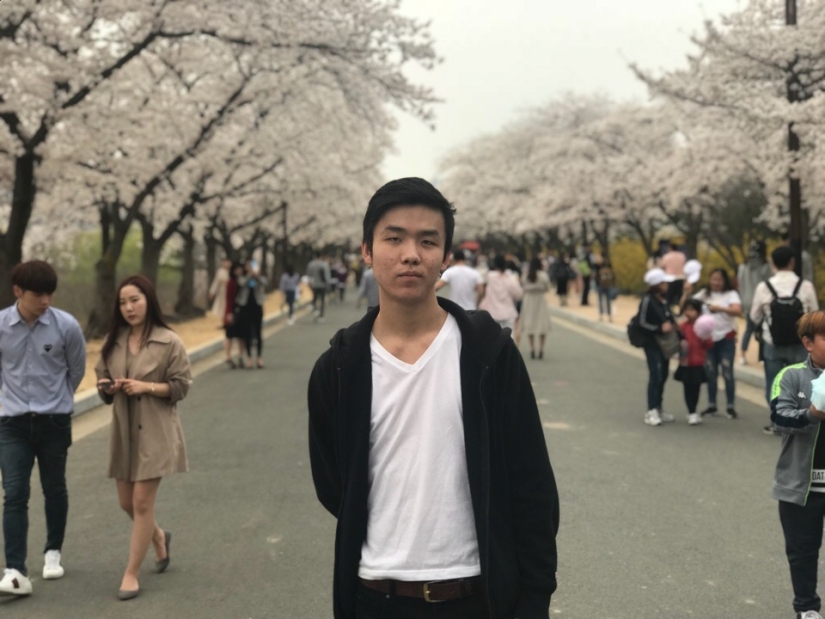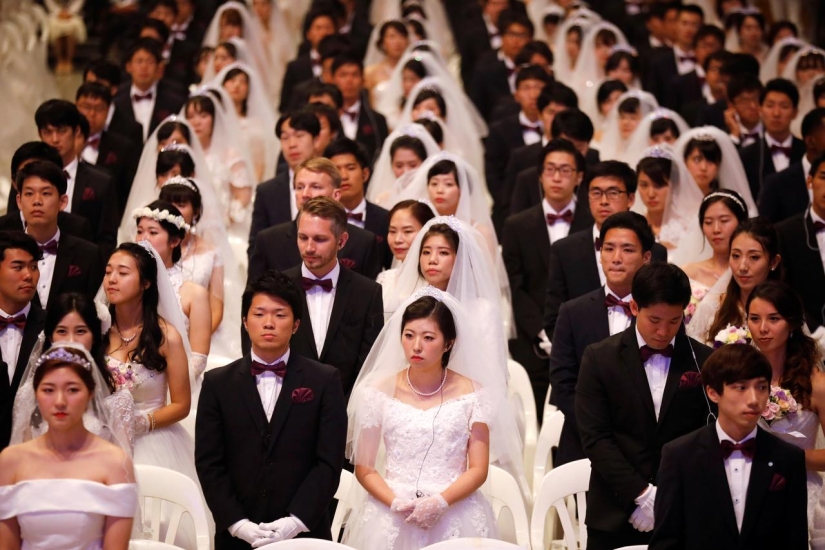Without a couple in South Korea: how Koreans treat singles and what the Sampo generation is
Categories: Asia | Nations | Society | World
By Pictolic https://pictolic.com/article/without-a-couple-in-south-korea-how-koreans-treat-singles-and-what-the-sampo-generation-is.htmlA Korean woman named Hyeon lives in South Korea, but she speaks Russian well and often writes interesting facts about her country and its inhabitants in Picaboo. This time the girl decided to tell how Koreans treat single people, why having a couple here is so important and why some young women categorically do not want a relationship.
Read about this and much more below. The article contains the words of the author.


If you communicate with Koreans, then most likely, when you meet them, after a few ordinary questions, they will ask if you have a girlfriend or a young man. Don't be alarmed: in Korea it is considered normal to ask this at the first meeting. For us, relationships are an open topic, and having a couple is very important in the life of Koreans, it even resembles fashion in some ways.
Also, in my opinion, the concept of personal life appeared in Korea not so long ago, so we are not yet used to both protecting our personal life and not interfering in the personal life of other people. Many Koreans don't even realize that their questions can be impolite, so they don't hesitate to ask anything they want.

Koreans often think that if a person does not have a mate, then he is "special" or he has some kind of problem — physical or psychological. The locals equate this with a disadvantage. In fact, someone likes to be alone, but most Koreans are sure that the absence of a couple is not a person's own choice, but the result of his failure in a relationship.

*At this point, I will call a person without a pair "solo", because that's what they call him in Korea. It will be more convenient to explain the Korean term this way:)
In Korea, there is a special word for a person without a couple, especially for those who have never been in a relationship. Such people are called "Solo from the womb." They usually try to hide the fact that they haven't met anyone, but their friends know about it and constantly make fun of them.
In Korea, according to the Confucian tradition, male and female schoolchildren/students are separated. If boys go to men's secondary school after primary school and then to men's high school, and immediately after graduation they serve in the army - there is a great chance to become a "solo from the womb", because there is no time and opportunity to get acquainted with girls. There are also women's high schools, women's high schools and even women's universities in Korea! While studying in such places, girls also have little chance of having a relationship.

In Korea, being a couple is "fashionable", so many people dream of having a relationship. Even younger schoolchildren dream of having a couple. On the Internet, you can see a bunch of posts on how to find a partner. Our bookstores sell books about relationships and living alone. For example, a book called "A Guide to Escaping from the Solo state" or "Why are you Alone". Even on TV they show programs about exiting the solo state (for example, 모태솔로 탈출).
In everyday life, people give a person without a couple a lot of advice on how to find love and start a relationship. Often these recommendations turn out to be offensive for "solo". For example: "If you lose a little weight, then you will have a girlfriend" or "You need to dress differently, and you will have a couple." They are also often offered to "bring them together" with their acquaintances and friends.

Korea has a very developed culture of relations. Most media outlets encourage dating and marriage. Almost all Korean dramas are romantic. There are also many special marketing offers for couples. There are foods that are consumed together and places that are visited together. For example, paired phone cases, paired watches, paired T-shirts, sneakers for couples, seats for couples in the cinema and even discounts on mobile communications.
Relationships are close to the spiritual world, but it seems to me that Koreans tend to think that relationships are like a material object. About whether there is money or not, whether there is bread and sausage or not, and whether there is a partner or not, they often talk in the same way. Therefore, Koreans are worried if their friends do not have a couple: "Why don't you have a relationship? Is there anything I can help you with?"

The Sampo generation, literally— is a generation that has given up three things: dating, marriage, and having children.
About 90% of school graduates go to universities. Most Korean universities are private, so the cost of tuition per year ranges from $7,000 to $10,000. Students get a student loan from a bank, after which they have to pay interest on the loan and earn pocket money. They don't have time to go out with friends and go on dates. They do not have the economic conditions to date a person of the opposite sex, so many refuse this idea.

A more serious problem is that it is very difficult to get a job after graduating from university. If they get a job, after 2-5 years, most Koreans will be ready for marriage. The average age of marriage in Korea is 33 for men and 31 for women.
The house is a prerequisite for marriage. Korea is a very small country, and 51 million people live in it, respectively, very expensive real estate here. It is almost impossible to buy a house on their own, so the couple either buys / rents housing with the help of their parents, or goes to the bank. Most people who don't want or can't get help from a bank decide to give up their marriage and live alone. This is not a voluntary renunciation, so it becomes a social problem.
In such a situation, many Koreans prefer to live alone without getting married. Accordingly, they automatically refuse children. This is my generation, people who refuse three things: dating, marriage and having children.

Some people prefer to be single and don't even try to go on dates. Many refuse to meet with acquaintances and friends because they are bored with personal questions or because it takes a lot of money.
In Korea, socialization is extremely important. A team is usually valued much more than an individual. Therefore, Koreans pay attention even to such things as, for example, where you come from, where you studied and with whom you communicated before.

We have a lot of traditions and cultural phenomena in which we do something together, for example, we go to restaurants, bars, mountains, etc. together, so that there is a sense of belonging to the group. But recently, due to the popularization of loneliness, many people go to cafes themselves, drink themselves and visit cinemas themselves. There are even names for such solitary actions: honpab (혼밥) — to eat alone, khonsul (혼술) - to drink alone.
Here is a slightly sad post.
By the way, this is the ninth post of Hyeon's post on Peekaboo. Earlier, the girl talked about the peculiarities of relations in Korea and about what amazing technology the locals use every day.
Recent articles

It's high time to admit that this whole hipster idea has gone too far. The concept has become so popular that even restaurants have ...

There is a perception that people only use 10% of their brain potential. But the heroes of our review, apparently, found a way to ...

New Year's is a time to surprise and delight loved ones not only with gifts but also with a unique presentation of the holiday ...